"The Black Phone" Review: A New Horror Film Starring Ethan Hawke As A Serial Child Killer
- Oops!Something went wrong.Please try again later.
The Black Phone is the latest addition to the popular trend of throwback horror — i.e. Stranger Things and the It films — that have been having a major moment as of late.

Based on a short story by Joe Hill (son of Stephen King), The Black Phone tells the horrifying tale of a local serial child killer called "The Grabber."
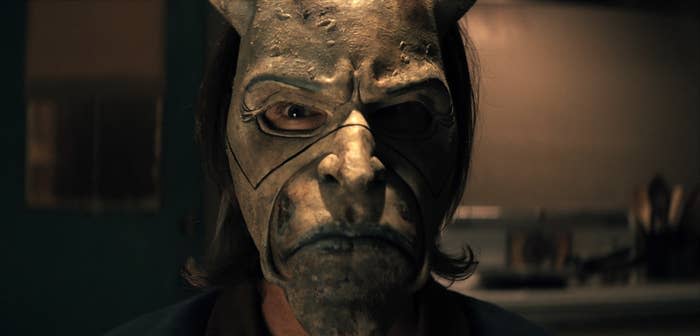
Hawke, who teams up again with Sinister filmmakers Scott Derrickson and C. Robert Cargill, plays The Grabber. If you've seen the promotional artwork, then you'll already be familiar with the very creepy, Lon Chaney–esque (London After Midnight) mask that's sure to be the most memorable aspect of the movie.
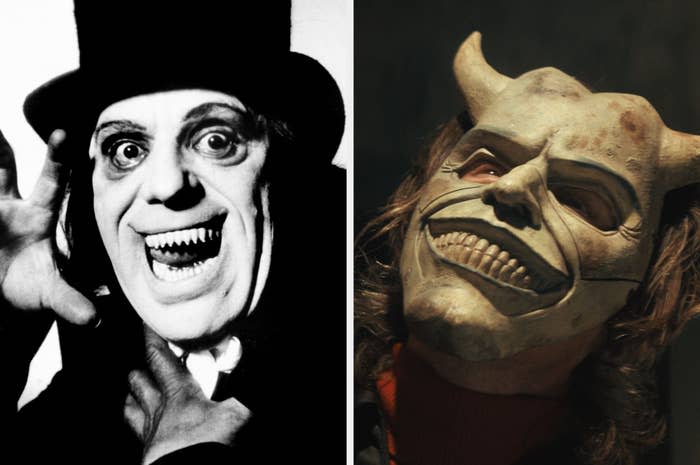
Note: There are some mild spoilers ahead and also mentions of child abuse.
So, the film opens with a montage that feels like something out of a high-brow HBO series. Through a series of creepy images — presented in era-specific low-fi footage — the tone is clearly set. And, if I'm being honest, the opening montage is one of the better parts of the movie.

Set in 1978 north Denver, we meet a 13-year-old boy named Finney (Mason Thames), who's bullied at school and tormented at home by an alcoholic father (Jeremy Davies).
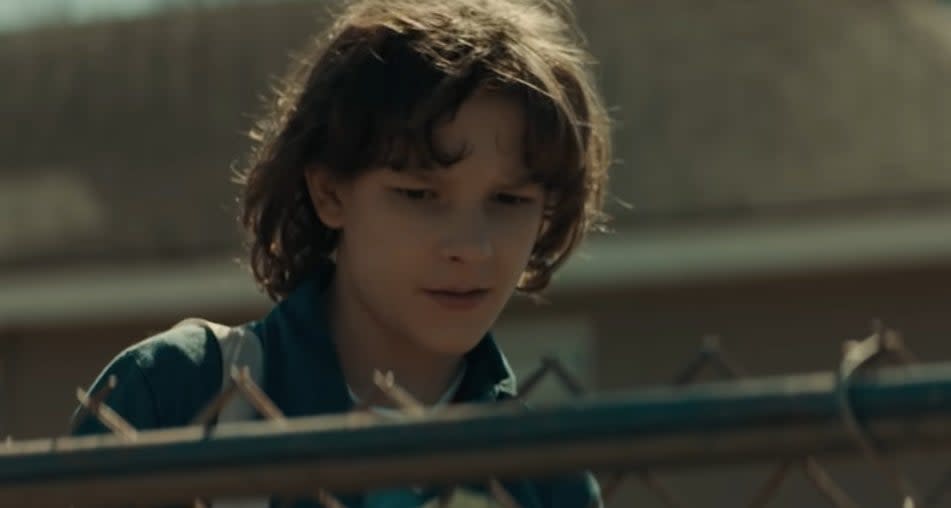
Finney is close with his younger sister, Gwen (Madeleine McGraw), who is sassy, super tough, and has a strange gift...

...you see, Gwen can ~see things~ in her dreams (more on that in a second). And yes, this concept feels like something straight out of a Stephen King novel — because like father, like son!
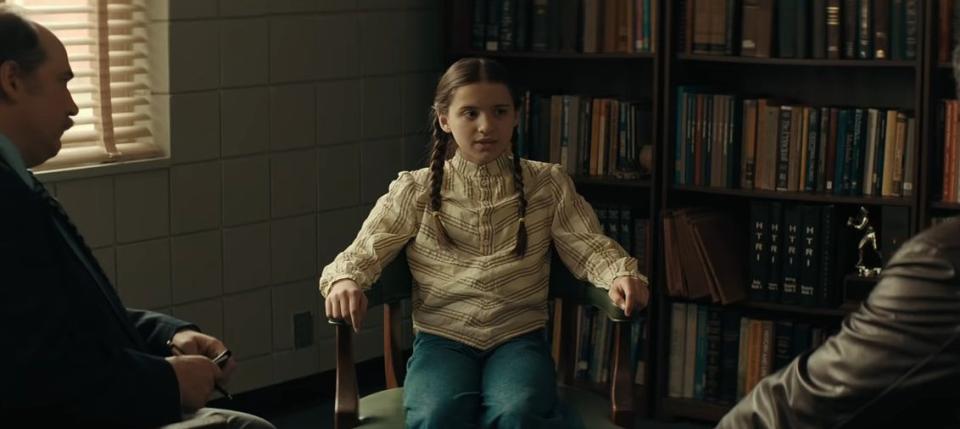
Now, over the course of a few weeks, some of the kids Finney knows from school go missing — Bruce, the local baseball superstar, and Robin, Finney's friend/defender from the bullies. The cops are on the case to solve these kidnappings, but their only clues are some black balloons that have been left behind where the boys were taken.
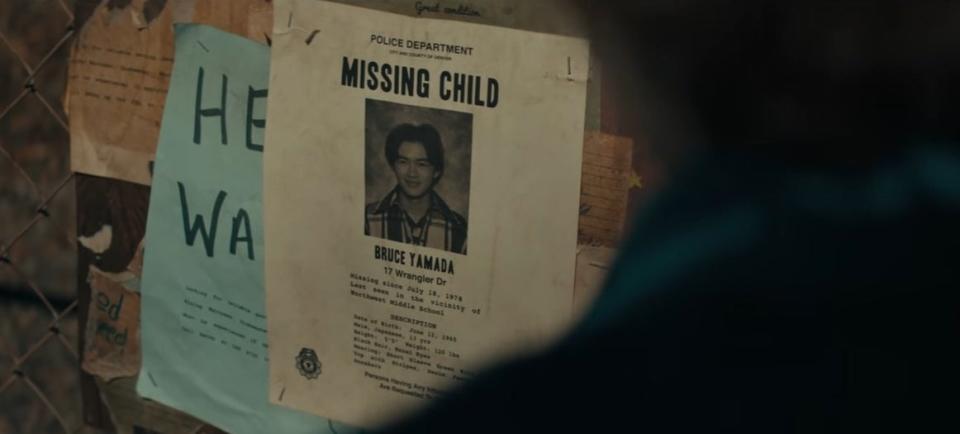
One day, Finney is out walking by himself (why are kids walking home alone when there's a known kidnapper about?!) and he comes across a strange man with a creepy van.
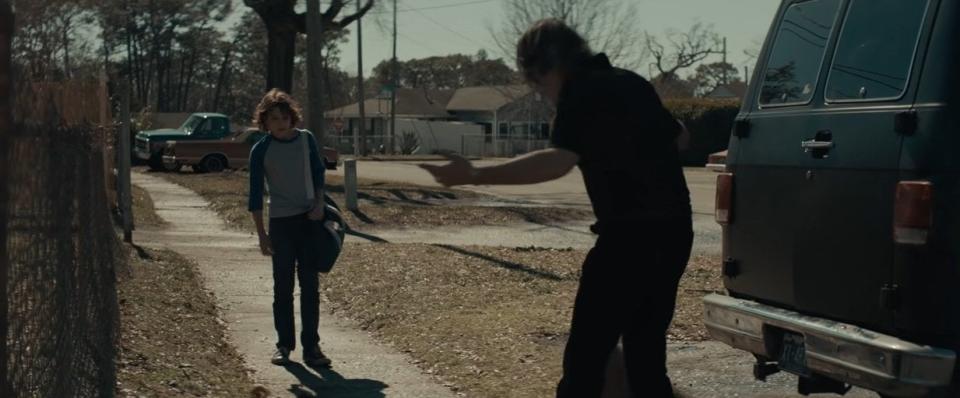
Now, we, the audience, obviously know this is The Grabber, but of course Finney does not and gets tricked. The Grabber asks Finney, "Would you like to see a magic trick?" (🚩🚩🚩🚩), then proceeds to drug him and toss him into his creeper van.
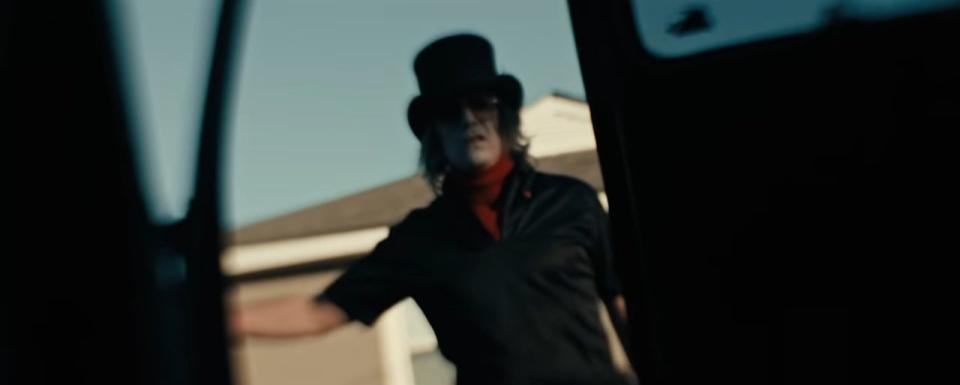
Finney wakes up in a prison cell–like basement. There's a mattress on the floor, a toilet in an alcove, and very oddly, a disconnected black phone on the wall.
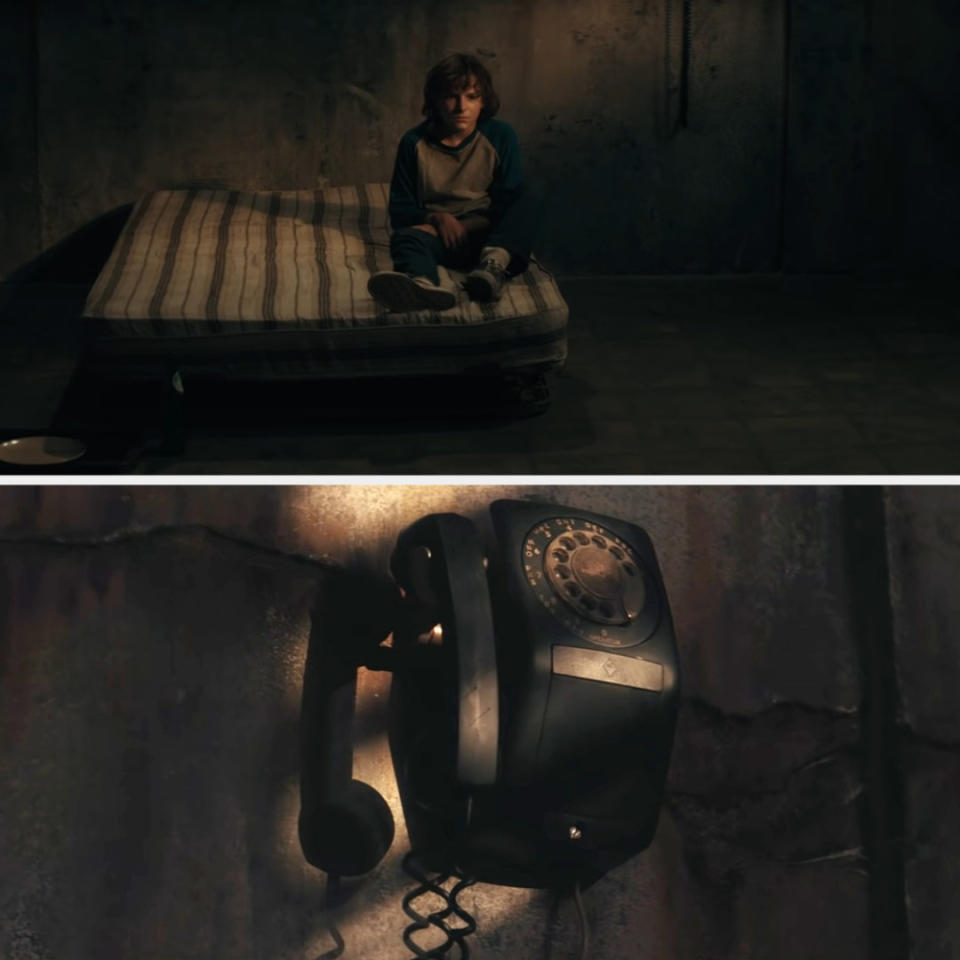
The Grabber explains that the phone doesn't work (so why keep it?!) and continues his plan to do whatever it is he's going to do to poor Finney.
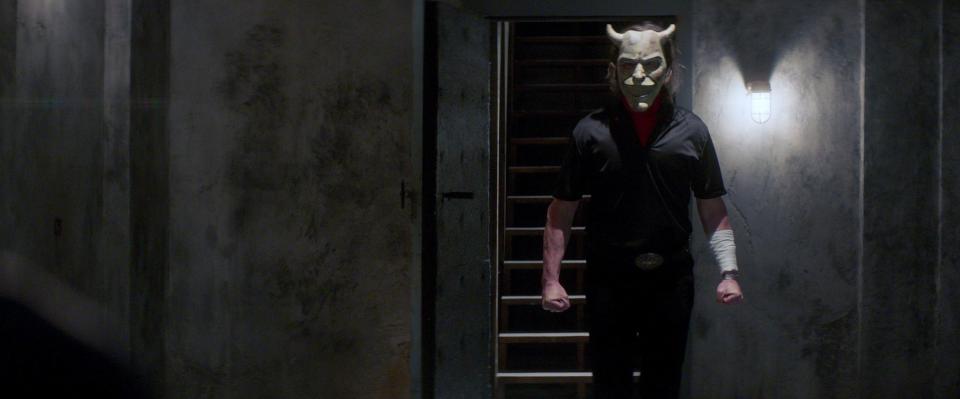
Now, remember how I said Gwen has ~visions~? Well, this is where it all starts to come into play. Earlier, Gwen explained that she doesn't really have control over what she sees. She also says that what she sees doesn't always come true. Despite this, she prays to Jesus (who she thinks gives her these powers) to have dreams that help her track down her brother.

Meanwhile, back with Finney in the basement, the black phone begins to ring. And who's calling Finney? The ghosts of all the dead boys who had been kidnapped and killed before him.
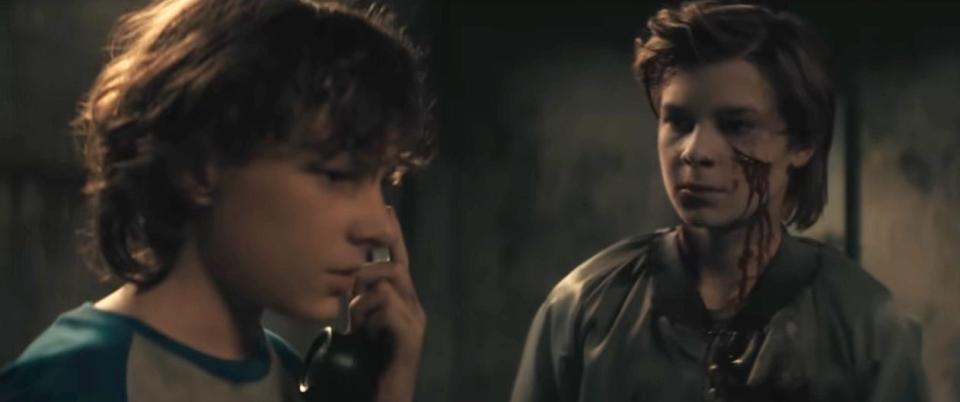
The ghosts of the boys are apparently unable to remember things like their own names. However, they are all able to recall very specific things they discovered in the basement cell — i.e. things that will help Finney escape. Things like lock codes, where loose floor tiles are, and the existence of freezers on the other sides of the walls (how would someone trapped in a basement know where a freezer was in a room he never saw?!).

And if this is all starting to sound a bit like confusing double mumbo jumbo, it's because it is!
Without getting into too much detail, let's just say Finney's trials and tribulations in the basement basically play out like a video game. But rather than having to struggle to figure things out on his own, the ghosts of boys past are conveniently there to help him out every step of the way. They also seem to call him at just the right time, every time. How this all works is never explained.

The Black Phone is not particularly scary — aside from like two jump scares. However, the film is actually quite violent in ways you might not expect. And the majority of the violence has almost nothing to do with The Grabber and more to do with the kids themselves.
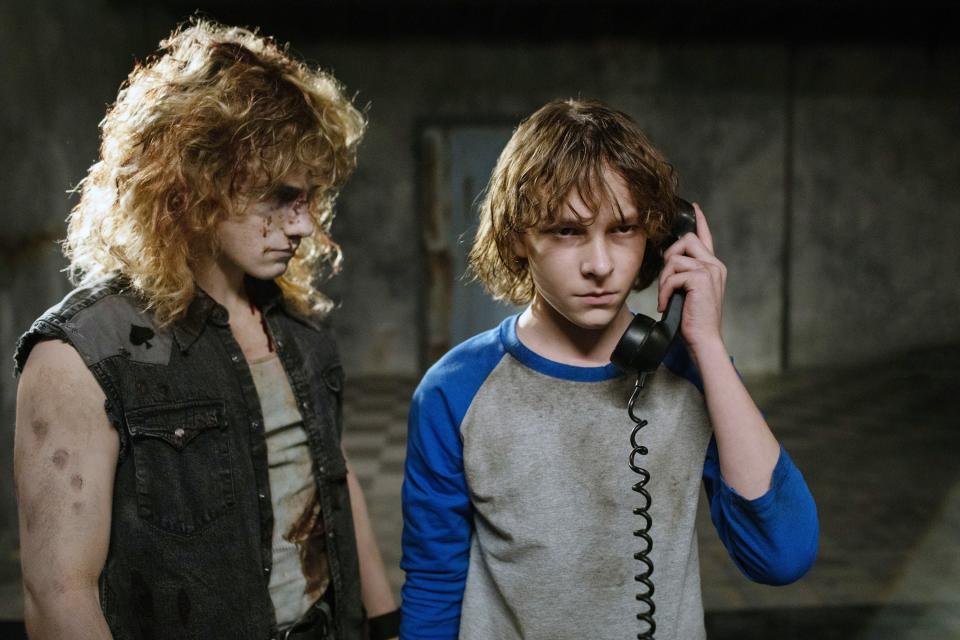
There are a number of violent fights between the kids that are both incredibly aggressive and also very bloody. Think: rocks used to smash heads and kids getting repeatedly punched in the face.
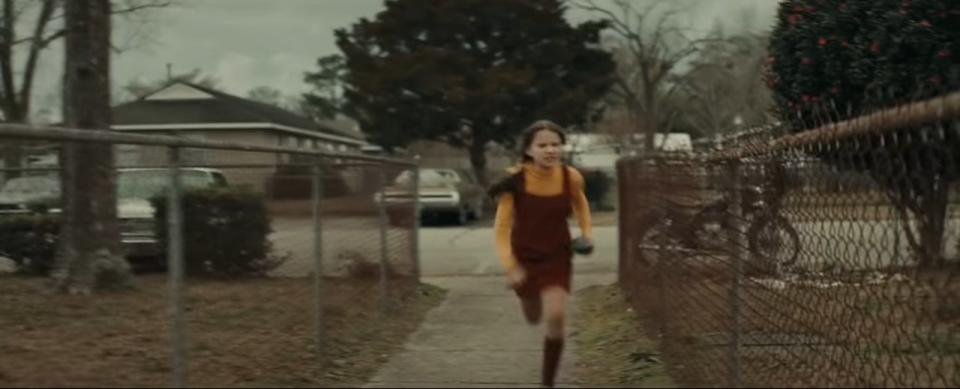
There's also a scene of child abuse that's not only unpleasant to watch, but in my opinion is something that didn't necessarily need to be shown in order to be effective. At one point, the father violently beats Gwen with a belt and Finney tries to stop it, but is powerless to do so out of fear.
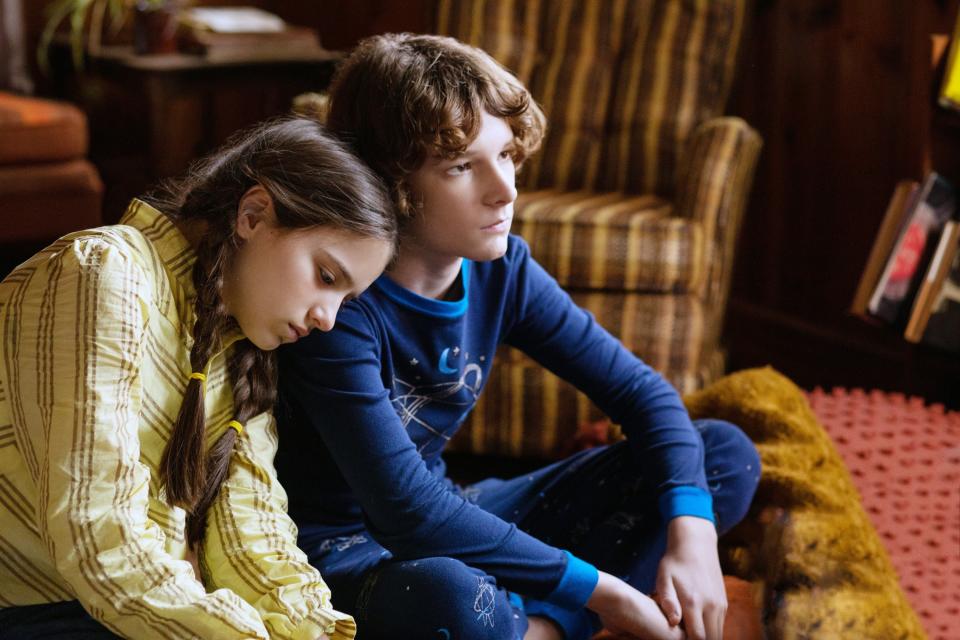
Hawke's Grabber, though creepy and menacing, never poses much of an immediate threat to Finney. In fact, he even brings Finney food and leaves him alone most of the time. There's a sinister plan (or "game") where The Grabber waits for Finney to sneak out so he can beat him with a belt, but that never happens. We also never know what The Grabber's M.O. even is.
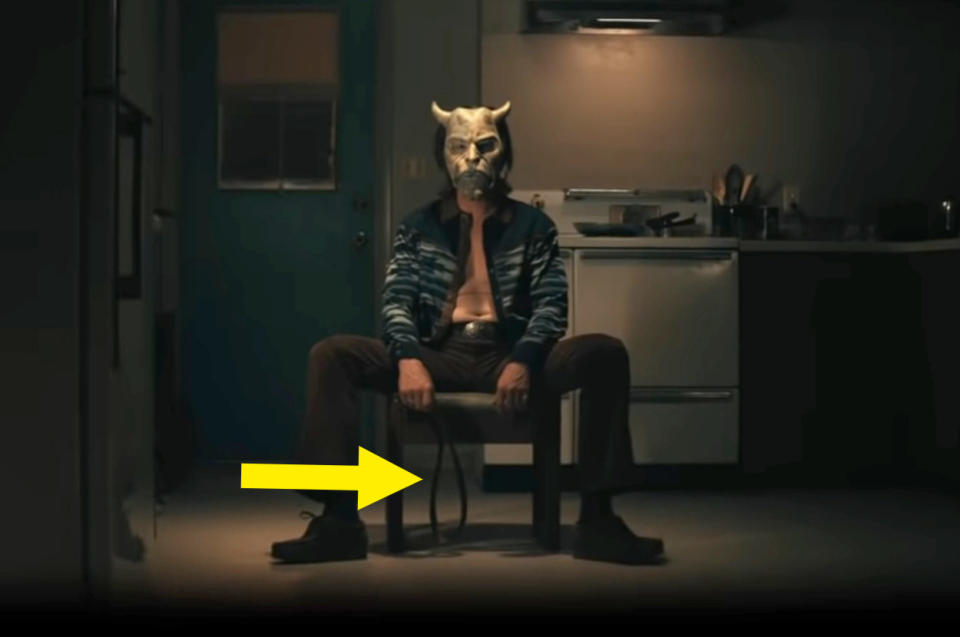
Somewhere in there, I think The Black Phone is trying to present the message of standing up for yourself (and against bullies) and finding strength and support in those around you (the ghost boys). But, ultimately, it's a bleak story that, while horrifying in concept, gets lost in muddled ideas.

While the premise is scary and, on paper, an interesting nostalgic nightmare, the main takeaway here is that The Black Phone doesn't quite deliver on the promise. And also... don't talk to strangers.
Universal Pictures

